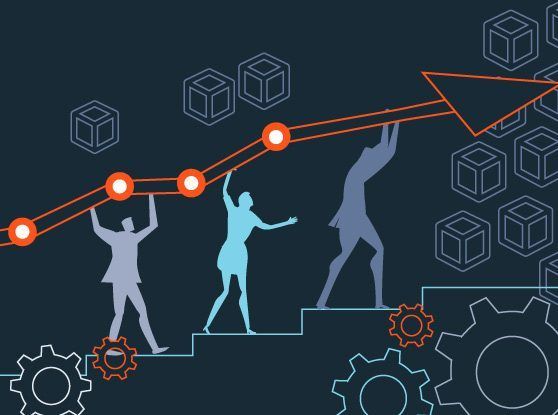Nick Sinai is an inaugural Walter Shorenstein Media and Democracy Fellow at the Harvard Kennedy School’s Shorenstein Center on Media, Politics and Public Policy. Nick is also a Venture Partner at Insight Venture Partners, a global software, data, and technology venture capital and private equity firm. He is a former U.S. Deputy Chief Technology Officer at the White House. Prior to joining the Obama administration, Nick was a venture capitalist at Lehman Brothers Venture Partners (now Tenaya Capital) and previously, Polaris Partners.
I'm in my second week at Harvard, back again two decades later. Some things never change.
20 years ago I was a freshman here, eating the pizza and subs at Pinocchio’s(“Nokes”). The guys working at Nokes are exactly the same, though maybe a bit grayer. I’m still a big fan of the Sicilian slices and the steak and cheese.
Some things change, obviously. This time around, I’m an inaugural Walter Shorenstein Media and Democracy Fellow at the Shorenstein Center on Media, Politics and Public Policy at the Harvard Kennedy School. That sounds fancy, but really it means I get to hang out with some of the most amazing students, faculty, and staff. I’m also excited to collaborate with the Boston tech and innovation community at large.
Here at Harvard, re-united with Aneesh Chopra, I’ll research, write, and speak on the topic of data — open data, big data, and personal data. As theWhite House Big Data Report highlighted this spring, data will transform the way we live and work, and will alter the relationships between government, citizens, businesses, and consumers. What are the implications for democracy, journalism, and for our everyday lives? How can public data improve government services, increase trust in government, and be a platform for private-sector innovation?
Before coming to the Shorenstein Center, I spent four years at the White House, in the Office of Science and Technology Policy. I was President Obama’s U.S. Deputy Chief Technology Officer, and I worked closely with all three of the uber-talented U.S. CTOs (Aneesh Chopra, Todd Park, andMegan Smith) and former Harvard Professor and current Presidential Science Advisor, Dr. John Holdren. I was honored to lead President Obama’sOpen Data Initiatives. Some of my contributions include Executive Order 13642, Data.gov, Project Open Data, the U.S. Digital Services Playbook, theG8 Open Data Charter, and the U.S. Open Data Action Plan.
In my mind, data are a valuable government asset, and should be thought of as infrastructure. We need to invest in it, protect it, and treat it as a platform for scientific discovery, economic growth, and private-sector innovation. That means thinking about openness and machine-readability from the beginning of a policy, program, or regulation — not just at the time of data dissemination. It also means thinking about data as general purpose infrastructure like roads, broadband, electricity — that are fundamental to economic growth.
The federal government collects and creates a ton of data that isincreasingly being made available to the world. We’re only beginning to see the civic and economic potential of making this data available. Weather data and the GPS system are classic examples of public-sector data and information systems that have spurred multi-billion dollar industries, but there is also a lot of exciting data in health, energy, education, finance, and climate sectors that is being made more available to scientists, journalists, entrepreneurs — and most importantly, the American public.
At the White House, I also worked to improve personal data access. In a digital world, we deserve easy and secure access to our own health, energy,tax, benefit, and student loan data — especially if the federal government stores or regulates it. Armed with our own data, we can make more informed decisions, or use the latest app to navigate an increasingly complex world. Government-held personal data is fueling new companies and services that help us make informed decisions about health, retirement plans, and college financial aid.
Data are critical to the effort to make government more efficient, cost-effective, and transparent. Another part of my portfolio was leading theOpen Government Initiative and developing the second U.S. Open Government Plan, to ensure that the federal government is more transparent, participatory, and collaborative. Improvements underway include greater fiscal transparency, opening up the We the People online petition platform, and improving service for Freedom of Information Act (FOIA) requests.
Data innovation is also one of the major focus areas of the Presidential Innovation Fellows program, which brings entrepreneurs and technologists into the government. That program, which I had the great privilege to help start and grow, was the catalyst for the new 18F digital services unit at theGeneral Services Administration. With the new government-wide U.S. Digital Service unit at the White House, 18F, and new digital teams in agencies, the federal government is determined to learn from Healthcare.gov and deliver simpler and more effective digital services.
Data also informs, and can help tell, the important stories of our time — as an example, check out this recent NPR story on over-sedating our seniors — made possible by data from the Center for Medicaid and Medicare Services. The 2013 government release of hospital charges of Medicare was featured by The New York Times: “Hospital billing data varies wildly, government data shows” and was celebrated by Jon Stewart in his bi-annual competency round-up — where he also highlighted Steve Brill’s excellent TIME cover article on high hospital bills.
If “software eats the world,” as Marc Andreessen famously said, data is the fuel for that software. Data (and the smart use of it) enables better decisions, better personalization, and better digital services — in both the private and public sectors. As Todd Park and Steve VanRoekel have said: “Open data is good for America.”
What do you think are the implications of treating public data as infrastructure? What are your favorite examples of how public data has improved government service, changed public opinion, or fueled entrepreneurship? Drop me a line at nick_sinai@hks.harvard.edu or tweet me if you’d like to chat. We can get Nokes, or I hear there is some good Chinese food in the area.










